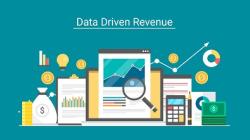When your financial planning and analysis (FP&A) becomes data-driven using automation and an intuitive platform with the right tools, then


Data today is being created and consumed at an unprecedented scale. Data science is progressing even faster, further speeding up
Annual Operating Planning is an important activity in many organisations. Some refer to it as budget season and every organisation

The KPIs you choose to measure the performance of your business, the KPIs you use in traffic lights, and the

The financial numbers only show one side of the story. When FP&A professionals are presenting the complete story behind the

Organisations are increasingly adopting data-driven approaches to decision-making. This is natural, given the amount of data we now have on
Pagination
Subscribe to
FP&A Trends Digest

We will regularly update you on the latest trends and developments in FP&A. Take the opportunity to have articles written by finance thought leaders delivered directly to your inbox; watch compelling webinars; connect with like-minded professionals; and become a part of our global community.







